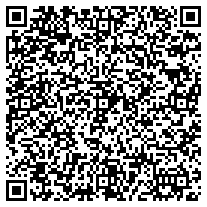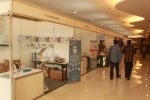Prof. Marlia Singgih’s Scientific Speech Reveals the Roles of Pharmaceutical Microbiology Towards Pharmaceutical Products in Indonesia

BANDUNG, itb.ac.id—The Professors’ Forum of Institut Teknologi Bandung (ITB) held an online scientific oration on Saturday (10/7/2021). Four professors were given the chance to deliver their speeches, including Prof. Marlia Singgih Wibowo, Ph.D. from the Pharmacochemistry Research Group of ITB’s School of Pharmacy.
Prof. Marlia- who succeeded in earning the title Doctor of Philosophy in Strathclyde University, UK- presented her topic “Roles of Pharmaceutical Microbiology in Quality Control and Development of Pharmaceutical Products in Indonesia”.
Prof. Marlia defined the legal foundations of pharmaceutical products in Indonesia, comprising modern and traditional medicines, their constituents, and cosmetics goods. Their preparation began with the procurement of starting and packaging materials, followed by their production, accommodation, quality check, and regulation. Its quality standards refer to Farmakope Indonesia or other countries’ grading systems.
“An important thing to keep in mind is the three imperative factors in Indonesia's medicinal distribution: safety, quality, and efficacy,” Prof. Marlia clarified. The medicine's quality requisites are further divided into several determinants, one of which is the microbiological aspect. “This is where the science of pharmaceutical microbiology plays its role.”
The scope of pharmaceutical microbiology is vast while maintaining the safety, quality, and efficacy of the products. Due to this, the study is closely affiliated with its commodities' risk management.
Prof. Marlia pointed out that most pharmaceutical supplies are classified into sterile and non-sterile ones. Their examination applies to the knowledge of pharmaceutical microbiology. For instance, sterile compounds undergo sterility, endotoxin, and pyrogen testing. For non-sterile items, quality testing is performed by microbial contamination tests.
On the other hand, microbiology-based compendial tests are available. These constitute antibiotic potency, preservative effectiveness, vitamin B1, and other analyses. Prof. Marlia also illustrated the benefits of microbes in the pharmaceutical industry. One example is its utilization to generate active substances like antibiotics, enzymes, antiparasitic drugs, and antioxidants.
Microbes can be cultured for food and beverage fermentation as well as health supplements. Moreover, its pigments are used for medicinal demands and consumption by creating the required materials to concoct vaccines and human proteins.
Roles of ITB in the Pharmaceutical Field
Prof. Marlia reviewed some of her experiments with her colleagues and students who are familiar with the subject of pharmaceutical microbiology since their first years. The implementation of the field was included in the students’ final projects while contributing to its development.
One of the researches titled “Potential of Secondary Metabolites from Indonesian Fungi and Algae for Pharmaceutics and Cosmetics” involved the pharmaceutical microbiology team dedicated to fungi and algae study in 2003-2018. Its results revealed that few investigated fungi have the possibility of manufacturing pigments used for food coloring.
Admitted to pursue research about pharmaceutical microbiology, Prof. Marlia is developing a thesis regarding Monascus purpureus with her doctoral students. This investigation is a collaboration between Prof. Phillipe Blanc from Universite Toulouse II in France.
“Pharmaceutical microbiology is continuously evolving and essential in the production and quality assurance of pharmaceutics, especially in Indonesia,” she emphasized.
According to her, Indonesia’s abundant natural resources can be seized as an opportunity to be explored and utilized for the nation’s welfare. Therefore, the dissemination of study results in pharmaceutical microbiology is highly expected from both national and international media in the future.
Reporter: Anastasia Meliana (Sains dan Teknologi Farmasi, 2019)
Translator: Ruth Nathania (Teknik Lingkungan, 2019)

scan for download








